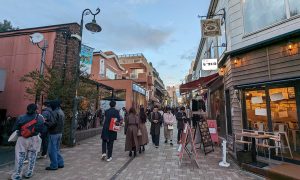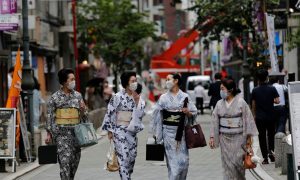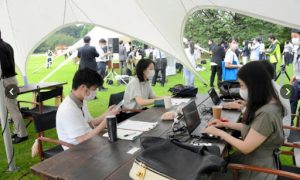In recent years, Japan, with its advanced economy, unique culture and increased demand for foreign labor, has attracted many people who wish toimmigrantsThe person who The Skilled Internship Visa is a common route chosen by many foreigners who wish to work in Japan. However, this visa is not a direct immigrant visa, but rather a temporary visa type for a period of one to five years. The visa can be obtained through theSkilled Internship Visa for Immigration to JapanIn order to do so, you need to have a clear path, understand the steps and avoid common problems. In this article, we'll explain how to get through the Skilled Internship VisaImmigration to JapanThe detailed steps and precautions of the
I. What is a Skilled Internship Visa?
The Technical Intern Training Visa (TITV) is a work visa for foreigners established by the Japanese government to help foreigners learn technologies and skills by working in Japanese companies and bringing them back to their home countries. The visa is often associated with fields such as agriculture, manufacturing, and construction. It provides both manpower support for Japanese companies and opportunities for foreign interns to improve their vocational skills.
II. Passing the Skilled Internship VisaImmigration to Japanfeasibility
While the Skilled Internship Visa itself does not directly convert to permanent resident status, it can serve as a bridge to long-term residency or even immigration. Below are two common pathways:
- Apply for a Specified Skilled Worker Visa after completing a skills internship
- Upon expiration of the technical internship period, qualified interns can apply for a specific skill visa and thus continue to work in Japan.
- Specific skills visas are valid for up to five years and can further create conditions for applying for long-term residence.
- Apply for a long-term visa after gaining work experience
- After excellent performance during the internship period and accumulation of relevant work experience, it can be converted to other long-term visas, such as employer-sponsored visas or skilled visas, subject to fulfillment of the conditions.
- Eventually, you can apply for permanent resident status in Japan after you have accumulated a certain number of years of work and length of stay.
III. Detailed Steps for Skilled Internship Visa Application
1. Understanding Visa Requirements and Eligibility
- The age is usually between 18 and 30 years old.
- Basic Japanese language skills (e.g. N4 level or above), some positions may require higher Japanese language skills.
- Applications must be made through a Japanese government-authorized technical internship organization or related program.
2. Choosing the right skills internship field
- The Skilled Internship Visa covers a wide range of industries, including agriculture, construction, manufacturing, food processing, and more.
- Ensure that your chosen field matches your skills and interests, and that you understand the job prospects in the field.
3. Apply through an intermediary or dispatching agency
- Many applications for technical internships need to be handled through Japanese authorized intermediaries.
- Choose a reputable organization to ensure that the process is legal and transparent to avoid getting caught up in bad contracts or high fees.
4. Prepare the necessary materials
- Copy of passport and photograph.
- Proof of academic qualifications and relevant work experience documents.
- A health certificate, which requires completion of a specified medical examination program.
- Japanese language proficiency certificate (if applicable)
- Skills internship contracts and acceptance letters.
5. Submit an application
- Submit the documents to the Japanese Embassy or Consulate in the applicant's country.
- Waiting for visa approval, which usually takes weeks to months.
6. Immigration and Internships
- After your visa is approved, you will enter Japan and begin your internship.
- Perform all tasks during the internship as specified and comply with the laws and regulations of the employer and Japan.
IV. Notes and Frequently Asked Questions
1. Protecting against the traps of illicit brokers
- Many applicants encounter illegal agents who charge high fees or sign unfair contracts during the application process.
- Always apply for a visa through an official organization recognized by the Japanese government.
2. Understanding Salary and Working Conditions
- The salary of technical interns should be in accordance with the Japanese minimum wage, and the working hours and overtime regulations should be in accordance with legal requirements.
- Clarify contractual details before starting work to avoid payroll deductions or overload.
3. Language and cultural adaptation
- Learn Japanese in advance and acquire basic daily communication and working language.
- Learn about Japanese workplace culture, such as focusing on the concept of time and teamwork.
4. Visa Renewal and Conversion
- The Skilled Internship Visa is divided into stages and usually needs to be renewed at regular intervals. Relevant documents, including an internship assessment report, are required at the time of renewal.
- If you plan to stay in Japan after your technical internship, you can plan ahead for visa conversion and communicate with your employer or agent.
5. Law and protection of rights and interests
- Japanese law stipulates that skilled interns are entitled to labor law guarantees, such as vacations and medical insurance.
- If your rights are violated, you can file a complaint with the Japan Technical Intern Training Organization (OTIT) or the Labor Bureau.
V. Guide to Life after Skilled Internship Visa
After completing the visa process and entering the country successfully, adapting to life becomes crucial. Here are some practical tips:

- Housing options
- Most skilled interns will be hosteled by their employers at relatively low cost.
- If you rent a room on your own, go through a formal rental agent to ensure that the lease is legal.
- Transportation and Travel
- Familiarize yourself with the local public transportation system and purchase a transit card (such as Suica or Pasmo) to get around more easily.
- Learn how to use navigation tools and master the transportation network of Japan's major cities.
- Work-study balance
- During the internship, we focused on improving our professional skills while continuing to study Japanese to lay the foundation for our future careers.
- Participate in community events or interest groups to expand your social circle.
- Health and Insurance
- Skilled interns are required to enroll in Japan's National Health Insurance to ensure that medical expenses are reimbursed.
- Pay attention to your health, rationalize your work and rest, and avoid overwork.
- legal compliance
- Renew your visa on time and comply with Japanese laws and regulations.
- Avoid visa cancellation by not working outside the scope of your visa.
VI. Summary
Through the Skilled Internship VisaImmigration to JapanIt is a gradual path that requires strict adherence to Japan's visa policies and laws and regulations. For applicants who aspire to long-term residence or even immigration, theJapanese skilled immigrantsIt is both an opportunity for career advancement and provides an important foundation for future visa conversion and long-term residence. Through thorough preparation, choosing the right field and organization, and actively adapting to life and culture in Japan, you can realize your dreams of career advancement and moving to Japan.







